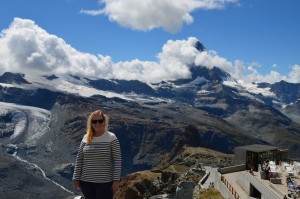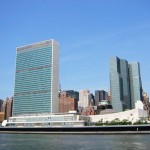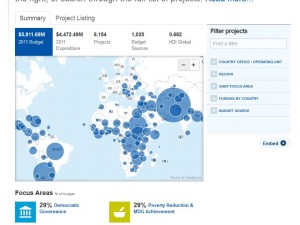The following entry was drafted by Sarah White, a dual-degree MPA & MAIR student.
Sarah White – WHO, Non-Communicable Diseases department
I spent this summer in Switzerland interning with the World Health Organization (WHO) and studying as a part of Maxwell’s Geneva Summer Practicum. Being in Geneva allowed for personal access and insight into the inner workings of a large UN organization as well as exploring ways the international community comes together to tackle some of the biggest issues we face today.
As an intern at the WHO, I worked on a small team within the Non-Communicable Diseases (NCD) department. Our team works jointly with another large international organization, the International Telecommunications Union (ITU), on mobile-based health interventions designed to reinforce healthy habits and decrease the likelihood of NCD risks. Lots of these programs are focused on helping people quit smoking as tobacco use directly leads to health, economic, and social losses in every county no matter how rich or poor. You can find examples of these programs on the Be Healthy, Be Mobile website.
Mobile-based health interventions are new, exciting territories for health providers and governments. As technology continues to progress, the Internet becomes more accessible, and service costs decrease, there will be even more opportunities for mobile interventions. Yet the definitive proof is still yet to be found. Part of my internship this summer has been to identify best practices for these programs, figure out ways we can convince governments of their cost-effective benefits, and create a guide that will supplement their recruitment policies by using social media outreach.
Besides learning about the new ways technology is changing the way we think about behavioral health interventions, being at the WHO and in Geneva allows me to learn about many other organizations I had little interaction with before. The WHO constantly has talks from experts on different health challenges. The interns here also organize their own talks from experts and other interns to share what they are working on.
Perhaps the best part of the Maxwell class is this kind of introduction and exposure to the different work done by organizations around Geneva. Coming from the private sector I did not know much about international organizations and their roles in influencing global priorities. During this summer, we had Q&As with over 10 different organizations in Geneva. In today’s culture of “leaning in,” many of our guests included women in high positions, which was not only inspiring, but allowed us to ask candid questions about their experiences becoming leaders. You just can’t get this kind of access every day.
My summer in Geneva taught me a lot about the type of organization I wish to work for in the future, the kinds of leadership to look for, and challenged me to think critically about why and how we do the work we do. Many thanks to Professor Schleiffer, my Maxwell family, and the Cramer Global Programs for making this summer a reality!




